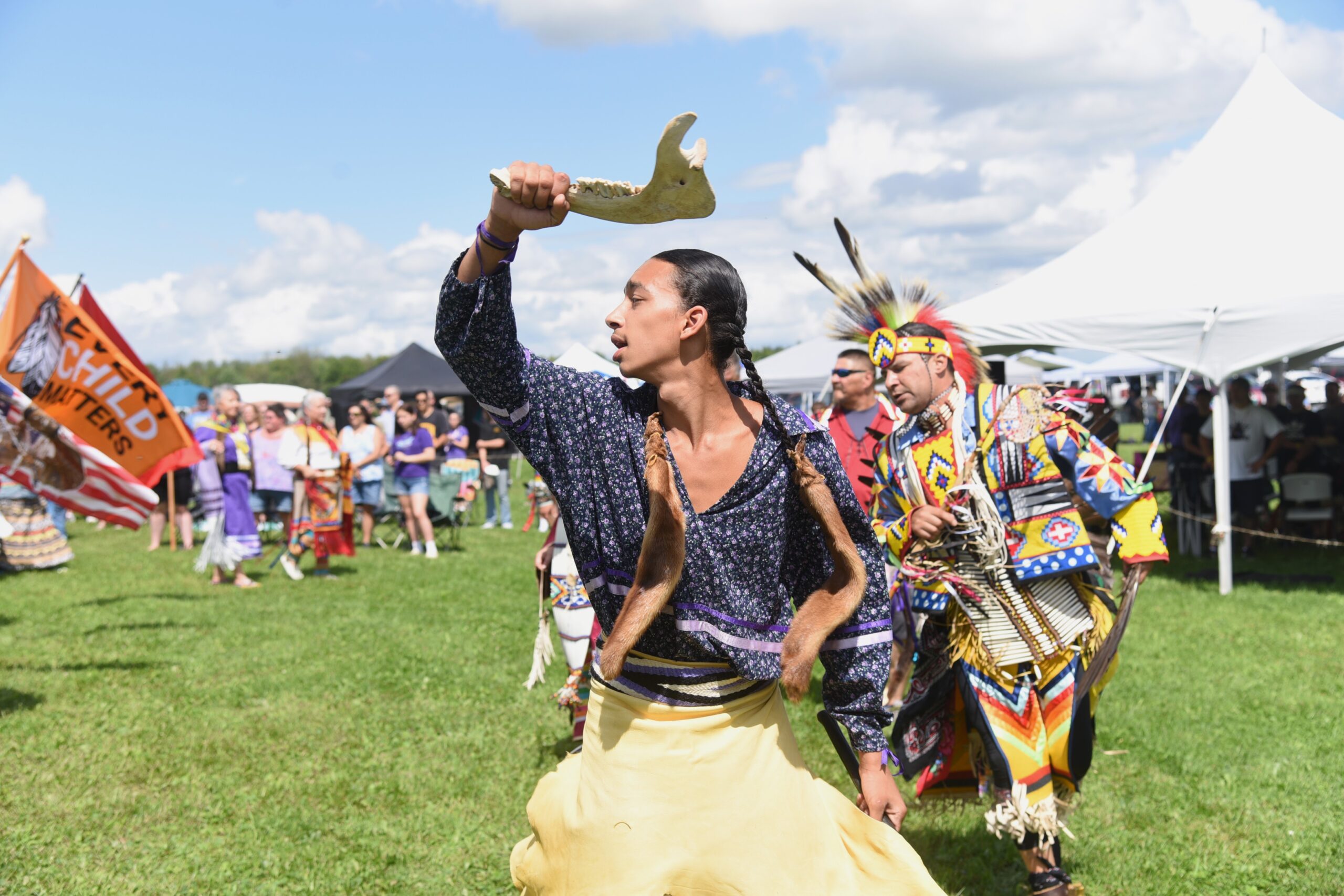
CARIBOU, Maine — The sound of ankle bells could be heard on Wambli Martinez’s regalia as he made his way into the circle to perform a male grass dance before the Grand Entry.
Despite the torrential rain that blanketed the area Friday night, the sun was shining bright on Saturday for the 28th annual Mawiomi at Spruce Haven.
Mawiomi means “gathering of people” and featured members of the Mi’kmaq Nation along with other Native American tribes, including dancers from the Narragansett people of Rhode Island who participated in the Grand Entry. Members of the public were welcome to attend the free annual event.
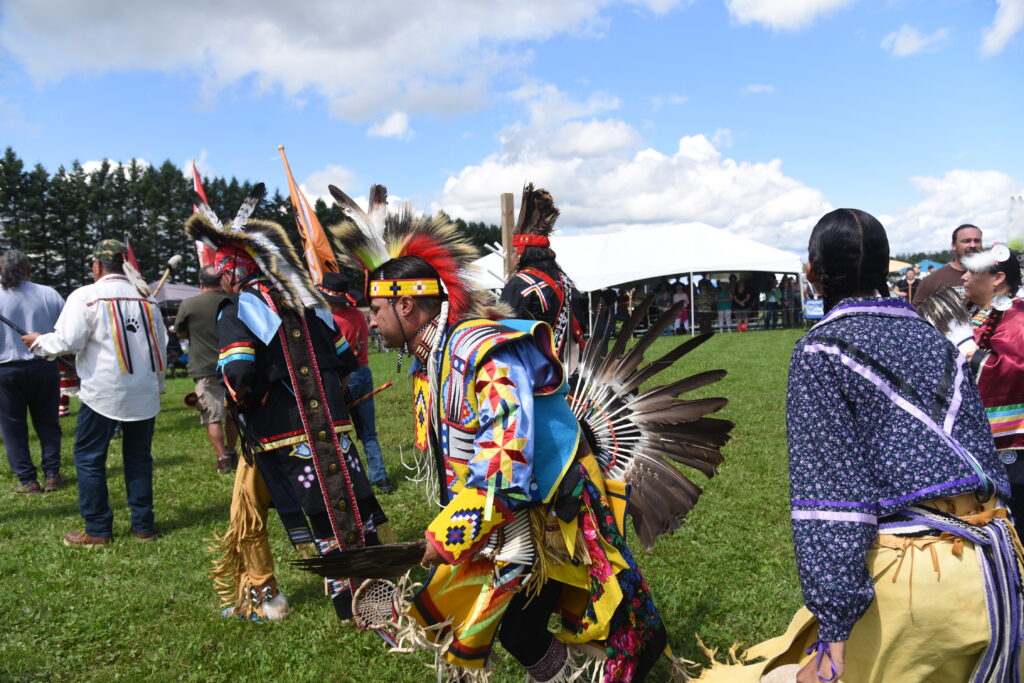
“A lot of them feel like we’re in a nation within a nation,” said Nick Paul, lead organizer of Mawiomi.
Some members of the Mi’kmaq Nation remember the cultural genocide brought on by the residential schools, which were only one generation ago, Paul said. The residential schools forced Native American children to give up their culture and language. Participating in cultural practices like the Mawiomi pow-wow is a way of saying that the Indigenous peoples are still here, he said.
A sacred fire was burning in a massive tipee and was lit on Thursday for people to offer prayers and medicines such sweet grass, sage, cedar and tobacco. Later on in the evening sweat lodges were held.
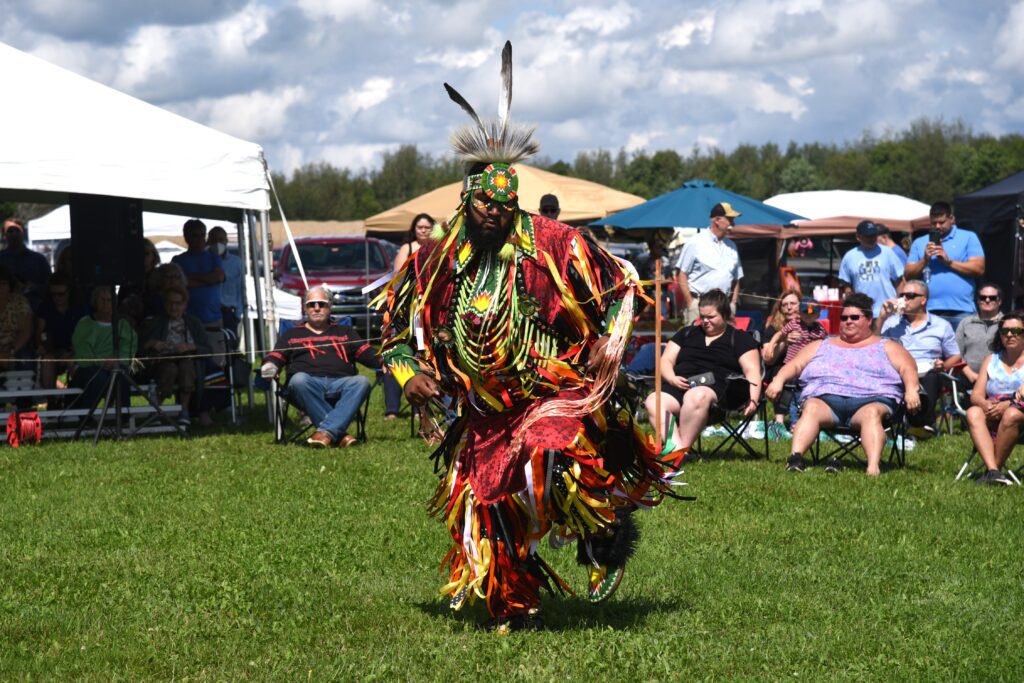
During the Grand Entry people carried into a circle area eagle staffs and flags, including the U.S. flag, Canadian flag, POW/MIA flag and a flag reading “Every Child Matters” that honors victims of residential schools.
Native Americans performed traditional dances, including an Eastern war dance to honor those Indigenous people who have died in wars and conflicts.
Lead woman dancer Claire Meuse’s regalia was made by her and her family members, and Rory Meuse’s jingle healing dress was made in Ontario and had 180 bells.
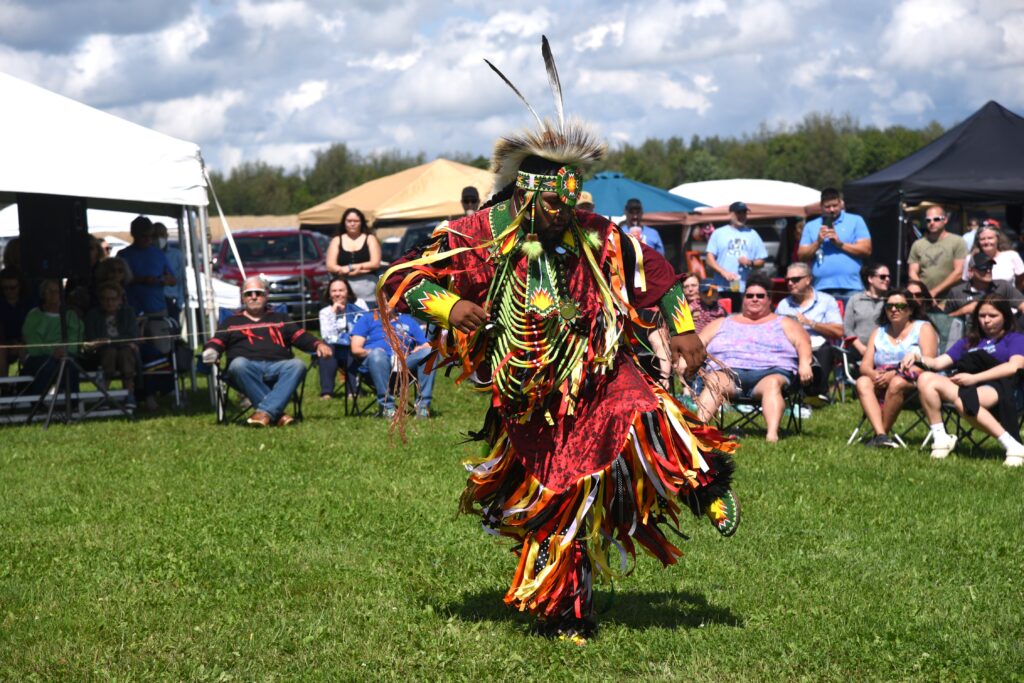
The lead dancers led the other dancers into the circle during the Grand Entry and danced for anyone who was unable to dance.
Traditional drumming was done with host drum Spirit Bear of the Listuguj Mi’gmaq First Nation and community drum Mawitan’ej E’pijig of the Mi’kmaq Nation.
Dancers included male head dancer Billy Meuse of the Mi’kmaq Nation from Membertou, Nova Scotia; female head dancer Calire Meuse of the Mi’kmaq Nation from Membertou, Nova Scotia; junior male head dancer Leland Machado from Charleston Narragansett Nation; and Rory Meuse of the Mi’kmaq Nation from Membertou, Nova Scotia.
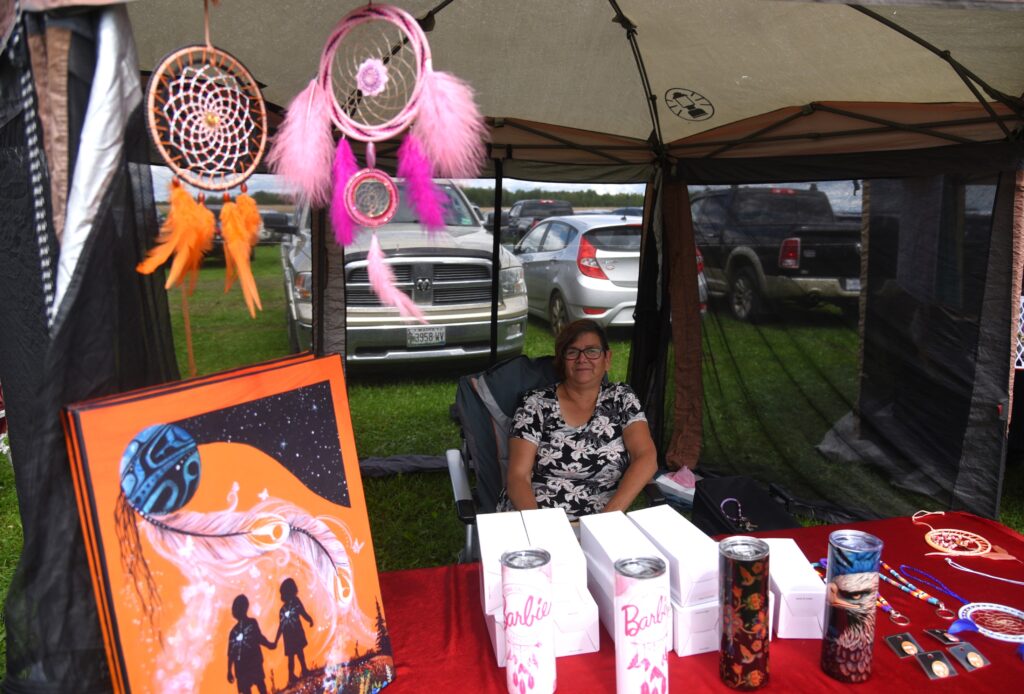
Tawoma Martinez has been coming to Mawiomi for the past 20 years and owns a business called Eagle Feather Creations, which makes regalia along with beadwork and leatherwork for the traditional clothing. She has been running Eagle Feather Creations for the last 30 years in Smyrna Mills, Maine.
“I usually try to incorporate the person’s designs and colors,” Martinez said. “My son, one of his colors is red and the sunset colors, so I’ll incorporate them into not only his cloth regalias but his beadwork.”
Mi’kmaq Nation bought Spruce Haven 30 years ago, where it hosts the Mawiomi pow-wow. The tribe invites members of the public and other Native American tribes to give back and thank the communities, Paul said.
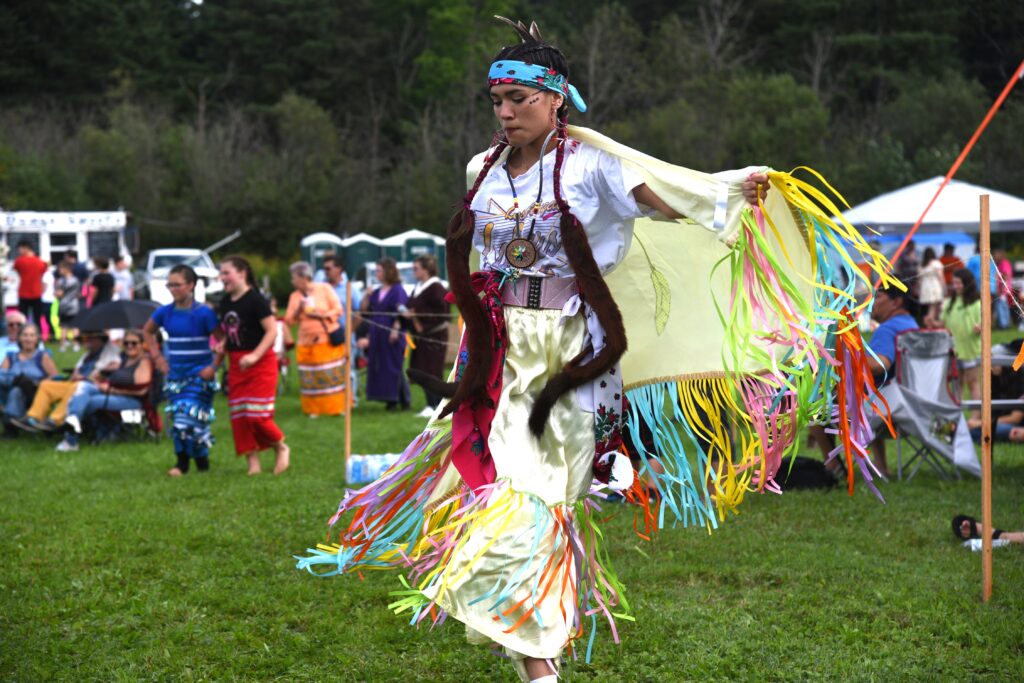
“There’s Mawiomi all over and all over Nova Scotia, too,” said Grace Pictou, Mi’kmaq Nation member and artist from Nova Scotia. “It’s almost every weekend that a pow-wow goes on from reserve to reserve.”
Pictou, who has come to Mawiomi for about nine years, sold beaded dream catchers and key chains as a vendor there.
A couple — Natanya (Pictou) Lasonde and John Lasonde — got married at Mawiomi because Natanya Lasonde wanted a traditional wedding with the Mi’kmaq culture. It was the third wedding that Martinez had seen at Mawiomi.







